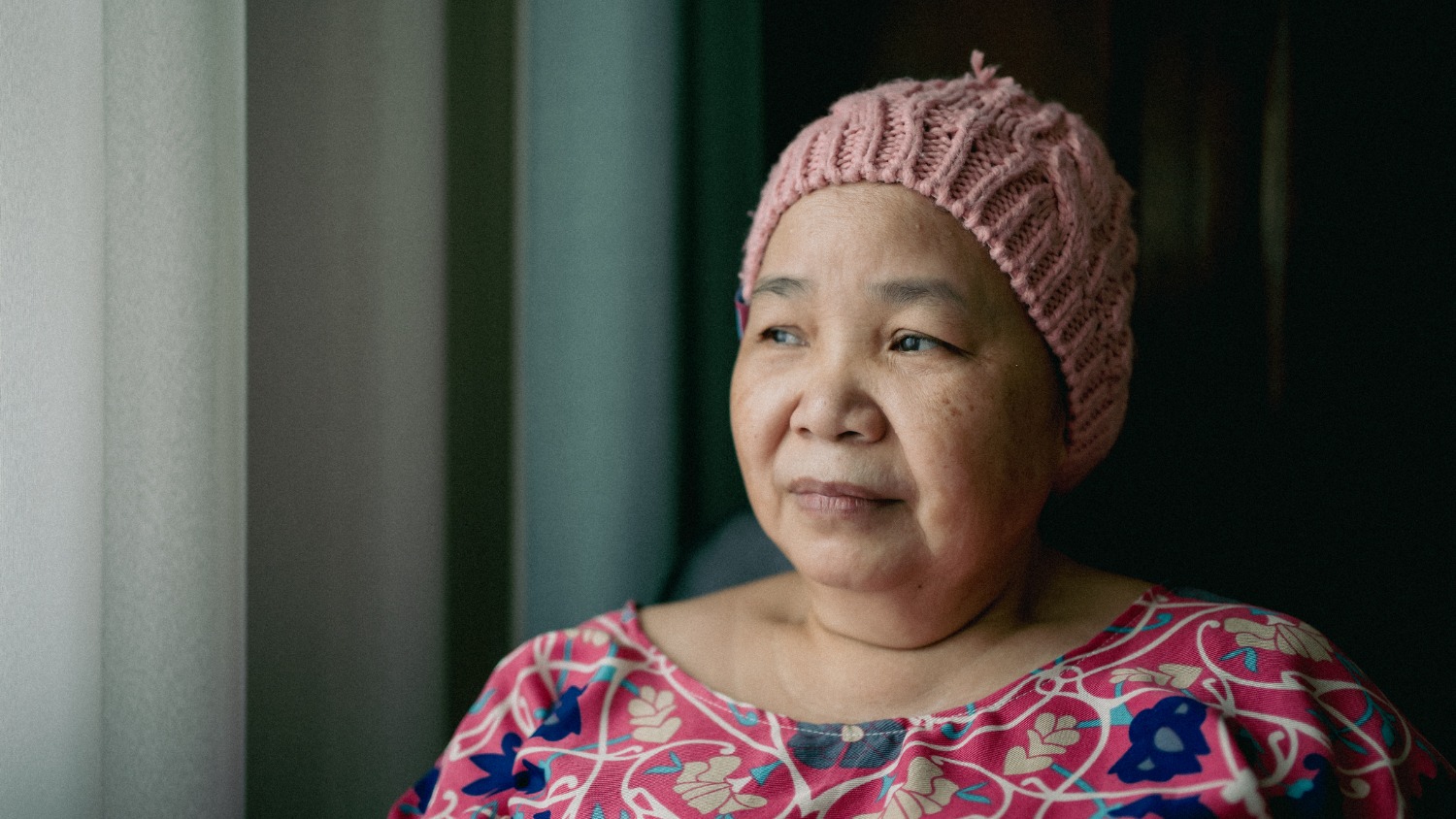
Eight Months in My Cancer Journey
Cancer. Not a diagnosis anyone wants to hear. But many of us will hear it, if we live long enough. One source tells me that 25% of us will have cancer at some point in our lives.
I was a month out from having a hip replaced when I was admitted to the hospital with a septic UTI. A group of specialists came and went from my room for four days, trying to determine why I was having recurrent infections and trying to find a solution.
Finally, a CT scan identified a suspicious area in my pelvic cavity. Two days later, a surgical biopsy confirmed a rare and aggressive form of bladder cancer and my life changed quickly. Upper Tract Urothelial Carcinoma (UTUC).
Maybe it is strange, but I had occasionally considered the possibility of being told I have cancer. I’m not really morbid, but I do like to be prepared. I had determined that if that day came, I would not approach the diagnosis as a medical emergency, but I would take the time to consider my best response.
I had read that most people allow cancer to be an emotional emergency, and I preferred to be as rational as possible.
Now, eight months later, I am glad to have been accepting of my diagnosis and am basically pleased with how things have played out. By slowing down (though the doctors had encouraged me to not wait on the biopsy), I averted an emotional crisis, and so far, my cancer trek has been difficult, but not unbearable.
I’m not done yet. The future is unknown, obviously. But I have learned a few things and will hold on to them as I go forward while learning new things and facing the next parts of my cancer trek.
Stay Calm and Ask Questions
No question is too simple and there are no dumb questions. At the beginning, I wasn’t sure what questions to ask beyond, “When is my next appointment?” and “Which doctor should I see?” As time has passed, I know more about what is of interest to me. I try to go into an appointment with the most pressing questions thought out beforehand.
One day, I asked the radiation oncologist how I would die. I didn’t think it was fair to ask when I would die… who knows that? But I was curious about what brings about the death of someone with UTUC.
In the process of answering (organ failure or systemic infection was his answer), he also addressed the “how long?” question I didn’t intend to ask. He told me to think of my life in terms of “months not years” but was quick to add that it could be 24 months or 36 months. I was thankful to have that information, even if I hadn’t asked for it.
Yesterday at my appointment with the oncologist, the questions I had were about a specific part of my blood work and about the possibility of future surgery. Also if it was too soon to contact my surgeon of choice since the possibility is still iffy.
Don’t Assume Someone Else Is Managing Your Care
In an unfortunate worst case scenario, I got caught up in scheduling difficulties that delayed my first appointment with an oncologist. I now know that the protocol in the clinic where I was receiving care is one week from diagnosis to first appointment.
It was more than two weeks for me. And I had received the biopsy report in my patient online portal almost immediately after it was done. When I finally talked with the oncologist, it was apparent he was not familiar with me or my diagnosis. I wanted answers and guidance and received neither in that first appointment.
I learned quickly that I should be the one driving my care. In some hospitals and with some diagnoses, a nurse navigator might be available to answer questions and to guide decisions. Not so in my case. A rare cancer, a short staffed clinic, and a doctor who was using up his vacation time for the year all created a frustrating beginning for me.
The frustration from lack of communication almost got the better of me. After a mini-meltdown when my treatment was postponed once again, and I was unclear that anyone was being proactive in my behalf, one of the transfusion nurses told me I could change doctors at any time and that it was my decision.
I chose to stay with my original provider because he had more experience with my particular cancer. But, I did have a conversation with him about my need for better communication. Specifically, I asked to have a response from him quickly, even if it was to say, “I have received your message and am considering the best response.”
We have evolved into a friendly and respectful relationship, but it took me speaking up for what I needed while not waiting for someone else to be in charge of my care.
Do Your Research
Early on, I arranged for a teleconference call with an experienced surgeon at a National Cancer Institute Center. Later, I also had a second opinion consultation with a urology oncologist at that same large cancer center. Their confirmation that nothing was being missed in my treatment gave us confidence to stay local.
Experiencing increasing pain, my daughter-in-law who is a palliative care doctor in another state, suggested I ask for a palliative care referral. That group of doctors has been the most helpful group to me. They not only have helped me navigate pain but also sleep disruptions and bowel changes and comfort with the use of drugs I was resistant to using (Opiods).
They check in on me often, even without me requesting an appointment and seem truly interested in my overall well-being. Most people associate palliative care with hospice care but one can exist without the other.
I found and joined several online groups for support, some more helpful than others. One group for women with bladder cancer was more confusing than helpful. The treatments and experiences that were in the comments didn’t apply to my own experience.
That drove me to a new online search for my specific diagnosis which led me to uroweb.org. It was so helpful, I wondered why I hadn’t run across it before, then realized it was newly created. There are many other helpful forums and websites.
The oncologist told me yesterday that the protocol (all driven by algorithms and insurance companies) for treating UTUC has changed since I was diagnosed eight months ago. Everything is changing quickly so staying up to date is worth the time and effort.
Listen to Your Gut
When it was suggested to me (several times) that I switch to a different oncologist, something didn’t feel right about that. While I appreciated the more aggressive approach of a colleague of my regular oncologist to an immediate problem I had (low platelets prohibiting treatments), I sensed that he was more of a generalist than a specialist… or that his specialty was different than my UTUC.
I stuck with the original oncologist in spite of his vacation absences because he had experience with bladder cancer. After my second opinion appointment with the specialist at the large hospital in Chicago, I was reassured that the local oncologist had not missed anything and was doing what others would do.
Now that we have developed a comfortable relationship and have accomplished mutual respect, I am glad to have stuck with my intuition and am completely comfortable with this doctor.
When other decisions come up, most recently the possibility of pretty invasive surgery, I am determined to wait to make a decision until my gut has enough information to be comfortable with how to proceed.
Rest and Only Do What You Can
I have always been active and independent. This cancer and the pain and lack of sleep and deep fatigue accompanying it stopped me in my tracks. I spent most of my days in bed, on a heating pad, trying to find some comfort.
Always being cognizant of my diet and careful about what I ate, I found myself existing on mashed potatoes and ice cream. Nothing sounded appealing and my digestive system was rebelling, and I lost 15% of my weight. I had to eat something so whatever I could get and keep down was what I ate.
Fortunately, I married one of the best care givers on the planet. He seemed tireless in bringing me food and meds. He responded to any request with action. He never complained or suggested I should be doing more for myself. His willingness to care for me gave me the permission to do nothing while sick. I am so thankful that I was able to relax and to simply exist, which was my capacity at the time.
Now, I have switched to an immunotherapy drug which I am responding to remarkably well. As I gain energy, with less pain and better sleep (thanks to the palliative care team who kept trying until we found a drug that works for me), I am reminded as I write this to rest and only do what I can. After two days of increased activity, I’m pretty tired today. There is no guilt of “should” today, just a day to rest.
Control Your Information
I chose to limit the number of people I told that I had been diagnosed with a terminal cancer. Immediate family, closest friends, and work colleagues in my office made up my short list. Why? I didn’t have the capacity for phone calls and visits.
I have a large network of relationships, many of which are superficial due to being social or industry related and the result of living in the same community for a long time. I didn’t want to be the latest cocktail party or business meeting gossip topic. I kept my information to the people I knew cared for me personally or who would be affected by my absence.
A friend challenged me on that decision not long ago. Her observation was that others who had faced similar hurdles had let their information be more public and had received a lot of overt support. That was exactly what I was avoiding!
I needed my own space and time to adjust to this life-altering news I had received. While other personalities could gain strength and encouragement from a lot of interaction, it sounded exhausting to me.
After being a giver and leader for most of my life, I needed to draw inward and not have to explain myself to anyone. I sensed that I would fall into my usual practice of being the encourager and the thought of the output required was exhausting.
I enjoyed almost eight months of relative privacy, but word has gotten out. I’m okay with that now. I have more energy. I am more comfortable with my diagnosis and my unpredictable future. People are less annoying to me now than when I was sleep deprived and in pain!
Early on, my sister-in-law who had lost her husband to pancreatic cancer a few months before my diagnosis, told me that cancer is not a journey, it is a TREK. I understand that now. I’m on a trek that I suspect will last for the rest of my life, however long that might be. I’ll keep learning and growing and sharing what I know for as long as I can.
Has cancer reached you in some way? What lessons did you learn from this journey – or is it a trek for you as well? Did you switch doctors? What questions did you ask? Where did you look for information?
Tags Medical Conditions






